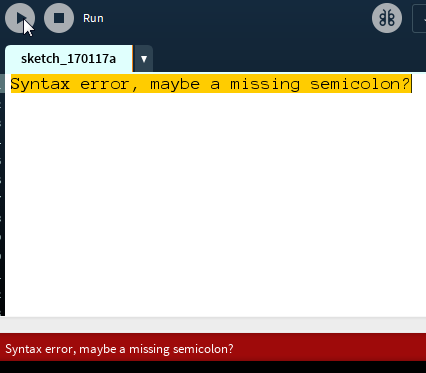Your challenge: write a "program", for a language of your choice, that causes the compiler/interpreter/runtime to produce error output when compiling/running your program which is identical to your program's source code.
Rules:
- Your program may be specific to a particular version or implementation of your language's compiler/interpreter/runtime environment. If so, please specify the particulars.
- Only standard compiler/interpreter/runtime options are permitted. You cannot pass some weird flag to your compiler to get a specific result.
- The program does not need to be syntactically or semantically valid, but I may give a bounty to the best syntactically valid submission.
- The program must not produce any output of its own (e.g. by calling a print or output function). All output generated upon attempting to compile/run the program must originate from the compiler/interpreter/runtime.
- The complete output of the compiler/interpreter/runtime must be exactly identical to your program source code.
- The compiler/interpreter/runtime must generate at least one error message when invoked with your program.
This is a popularity contest. Most creative answer, as determined by upvotes, wins. If you can give a good case for using a standard loophole, you may do so.



Error: Could not find or load main class Q\$\endgroup\$